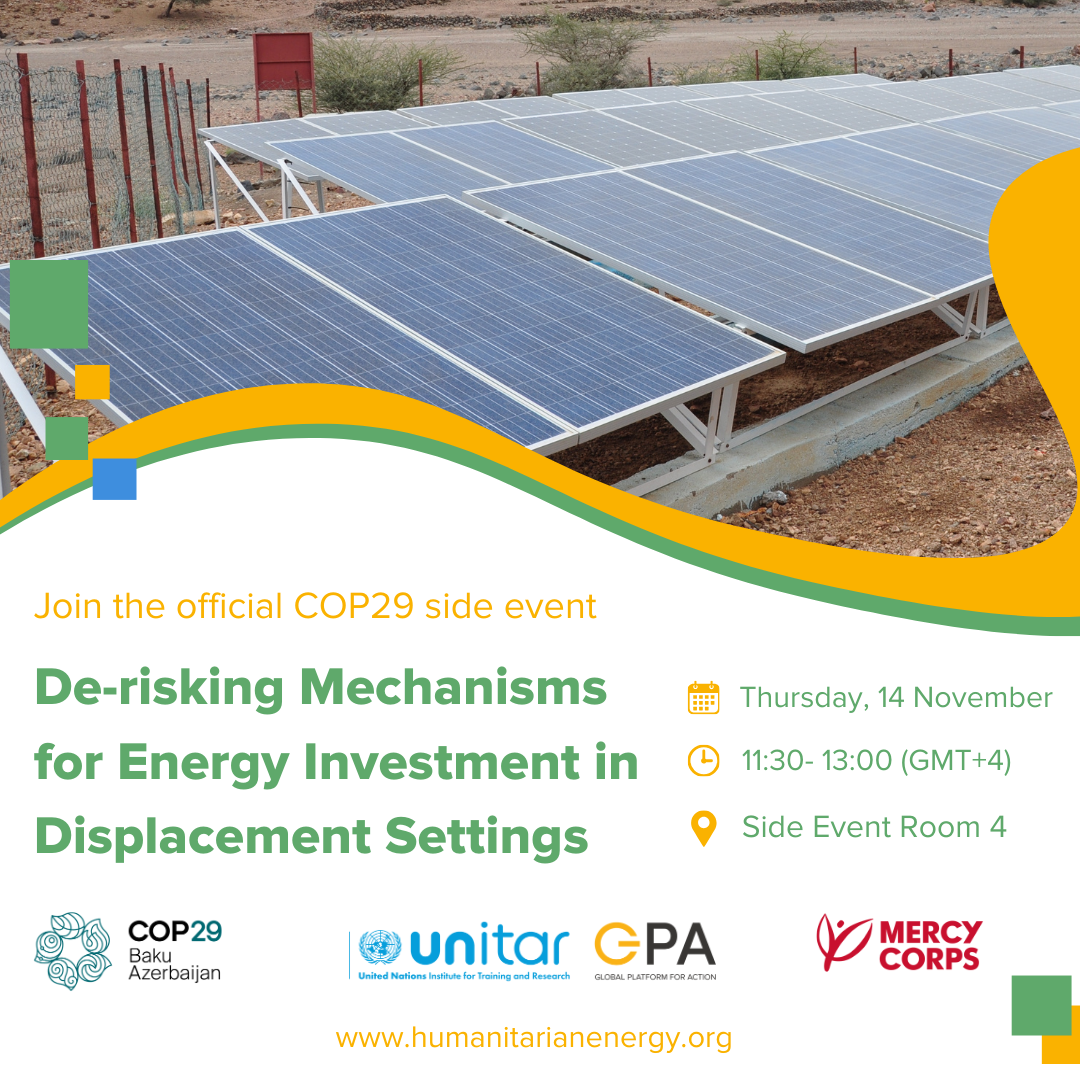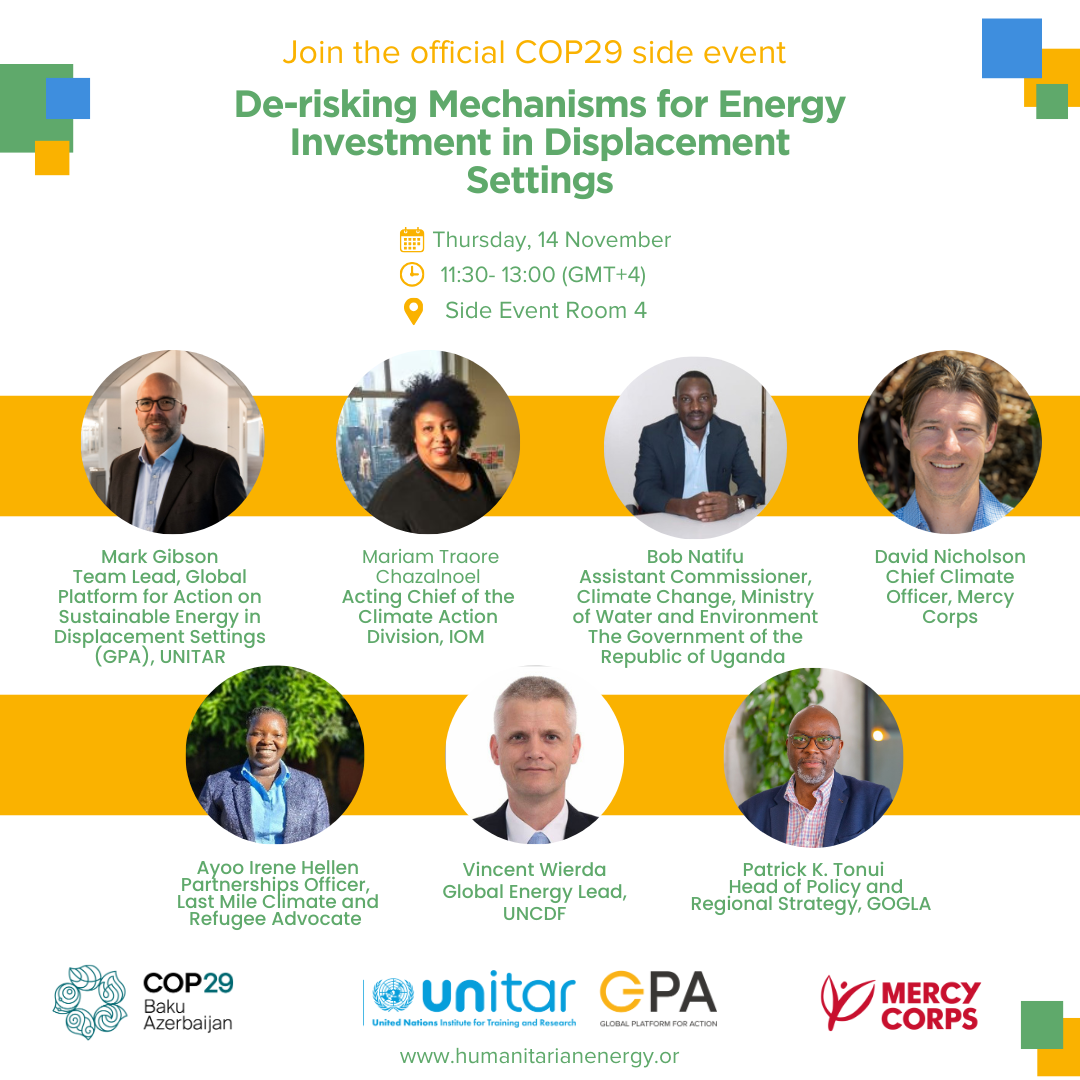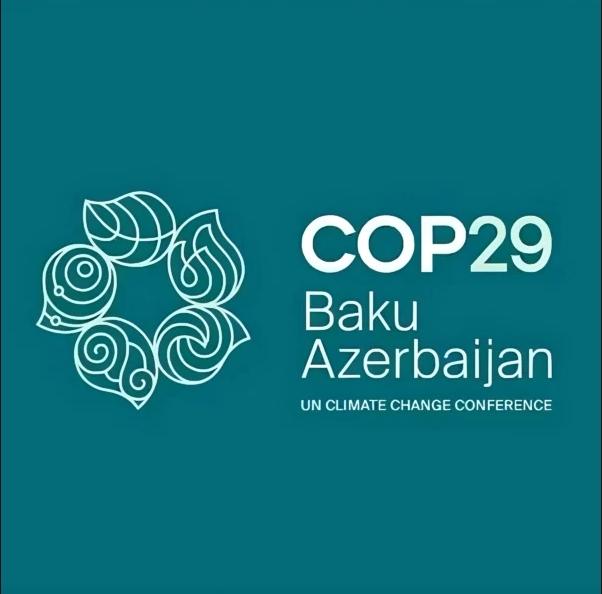Event Details
14th November 2024
10:30 - 12:00 (11:30-13:00 Baku time)
Baku, Azerbaijan
 Where and When?
Where and When?
Venue: Side Event Room 4, Blue Zone, COP29
Date: Thursday, 14 November 11:30-13:00 AZT
Lead organization: United Nations Institute for Training and Research (UNITAR), through the Global Platform for Action on Sustainable Energy in Displacement Settings (GPA)
Background and Context
The world faces an unprecedented increase in the number of people who are forcibly displaced as a result of unstable economic and political situations, conflict, natural hazards, and climate change. The humanitarian sector is overwhelmed by the high demand for protection and access to the basic needs of over 100 million people[1], which is estimated to increase considering the intersection of energy access and climate action in this context. Climate change exacerbates vulnerabilities within displaced communities by increasing the frequency and intensity of natural disasters, which strain the humanitarian sector’s resources and capacity to respond effectively. Electrification through renewable energy sources is a key strategy to lower emissions within the humanitarian sector and extend electricity access to displaced and host communities, fostering climate adaptation and resilience.
Humanitarian operations heavily rely on diesel generators to produce electricity. The interviews conducted by the GPA Coordination Unit in 2021[2], six UN organisations and ICRC have 11,365 generators in use, costing $108 million on fuel per year, emitting 194,000 tCO2. It is estimated that the solar could reduce fuel expenditure by $70 million and CO2 emissions by 126,000 tCO2. Furthermore, globally, it is estimated that displaced people spend 1.6 million USD to light their homes and cook their food. Investing in energy access means a huge social impact and comes with a return on invest, with an estimate that every 1 USD spend on energy access generates between 1.40 and 1.70 USD in the form of employment, environmental benefits, productivity and time savings.
Traditional delivery models for renewable energy solutions often face significant barriers due to high upfront costs. In the humanitarian sector specifically, the early termination clause in humanitarian contracts leads developers to set premium pricing to offset termination risk, effectively undercutting the financial case to transition. To address these challenges, the humanitarian sector has been developing innovative financing mechanisms and new evidence to support renewable energy adoption. These innovations enable the private sector to play a crucial role in delivering sustainable energy solutions in displacement settings, addressing both humanitarian needs and climate goals.
The session will explore how derisking mechanisms can unlock sustainable delivery models for electrification, featuring the latest evidence and experiences from the activities, projects and programmes delivered by the partners of the Global Platform for Action on Sustainable Energy in Displacement Settings (GPA). It will also present near-term ambitions and good practice examples from key humanitarian and development agencies working on clean energy.
Objectives:
- Demonstrate the positive impact of renewable energy on emission reduction and resilience in displacement settings.
- Showcase innovative financial de-risking mechanisms and technical assistance models for energy investments.
- Share successful case studies and lessons learned from the humanitarian and development sectors and demonstrate the importance of cross sector collaboration in developing solutions.
- Explore challenges and opportunities in implementing renewable energy in displacement and emergency contexts.

[1] United Nations High Commissioner for Refugees. (2024). Refugee statistics. UNHCR. Retrieved from https://www.unhcr.org/refugee-statistics/
[2] Global Platform for Action on Sustainable Energy in Displacement Settings. (2021). Estimating the use of diesel generators in displacement settings: Summary report. Retrieved from https://www.humanitarianenergy.org/assets/resources/Summary_-_Estimating_the_use_of_diesel_generators.pdf

The Conference of the Parties (COP), is held annually, with the Presidency rotating between the five recognised UN regions. This year, Azerbaijan has been selected as the Presidency of the 29th Conference of the Parties (COP29), to be hosted in Baku. The COP29 will be held at Baku Stadium.
Find details: COP29 website
Last updated: 25/11/2024
